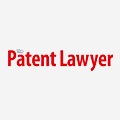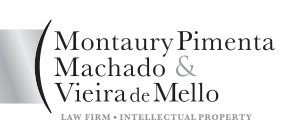Ana Paula Brito & Maria Eduarda Junqueira of Montaury Pimenta, Machado & Vieira de Mello give a brief outline of each proceeding and how courts assess the technical discussion in both.
In Brazil, there are basically two litigation fronts available when it comes to patent lawsuits:
(i) Enforcing patent rights against an infringer; and
(ii) Challenging the Brazilian Patent and
Trademark Office (INPI)’s decision, either granting a patent or rejecting a patent application.
According to the Brazilian IP Act (Law no. 9279/96), a patent invalidity proceeding can be filed at any time during the patent term, either by the BPTO ex officio or by any entity which has a legitimate interest. In addition, any BPTO decision, including rejecting decisions and undue office actions are suitable to be challenged in the federal courts, also within five years from its publication in the BPTO’s Official Gazette1.
With respect to infringement action, although a patentee can also pursue a criminal action, in Brazil most lawsuits are addressed to a civil court, as criminal penalties are very weak and addressed to the individual instead of the company, reason why they have no economic repercussion. So, criminal lawsuits are rare and not as effective.
Thus, civil actions are the most common and efficient remedies to cease a particular patent infringement in Brazil, and most of them bring the combination of claims for damages, cessation of use and a preliminary injunction request.
In civil law, a preliminary injunction can be requested and granted at any time and even before the defendant becomes aware of the action (ex parte basis), especially considering the provision of Brazilian IP Law (nr. 9279/96), which establishes in article 209 (paragraph 1)2 that the Judge may grant an injunction to suspend the infringement to avoid irreparable damages.
In order to obtain a preliminary injunction in Brazil, it is necessary to comply with some requirements3, such as (i) providing clear and convincing evidence of the claimed rights and of the infringement – known as likelihood on the merits - and (ii) attesting the risk of irreparable harm.
However, generally in patent infringement cases, judges do not rely upon unilateral reports, a reason why obtaining an ex parte injunction is quite unusual, as the matter is
highly complex and depends on an in-depth discussion of the technical issues.
In most cases, temporary reliefs should be grounded on solid and irrefutable evidence that shows a prima facie case. Permanent injunctions are only obtained on a final decision on the merits.
As a response to an injunction, the respondent can apply to discharge or vary an interim order, regardless of whether the order was granted with or without notice. In addition, it can also file an interlocutory appeal against the interim order, within 15 days of receipt of notification of the order (Article 1.015, I, CPC), so that the injunction relief is reanalyzed by the court of appeals, where a three-judge panel will confirm or overrule the trial court judge’s decision.
The plaintiff may also seek to impose a daily penalty for failure to abide by the preliminary injunction.
If the interim relief sought is granted, the defendant will be hindered from using the infringing technology involved, pending a final and definitive ruling on the substantive lawsuit.
When assessing the infringement, there are three different possibilities:
- Literal infringement - when one of the claims is literally reproduced in the infringing product: the infringing party is not even concerned to present any variant to
distinguish its product, or process, from the patented one. - Equivalent infringement – a most common type of patent infringement in Brazil, whereby the infringing party includes subtle differences in the infringing product, or
process, characterized in small details, that do not alter the essential constituent means of the patent, though. - Contributory infringement - anyone who assists in counterfeiting, whether by supplying or simply offering to supply a constituent element of a patent, may be considered an infringing party and penalized for the crime of counterfeiting when such practices are not authorized by the patentee.
Infringement actions are brought before state courts, as the BPTO does not participate in such proceedings. On the other hand, invalidity actions are heard by federal courts, as the BPTO is a compulsory co-defendant, attracting the venue of the lawsuit to a federal jurisdiction, which are usually brought in Rio de Janeiro, where the BPTO is headquartered.
In order to attest the infringement, the plaintiff shall make a direct comparison between its patent and the infringing technology, as to attest that the infringing product conflicts with at least one of the independent patent claims, and that it includes all the characteristics of said claim.
While to attest the invalidity of a patent, it is necessary for the plaintiff to attest that the patent does not meet at least one of the conditions set forth in the IP Act: novelty, inventive step, industrial application or sufficiency of disclosure.
Infringement and invalidity actions during the trial phase are heard by a single judge, who generally has no technical background. So, for both situations an unbiased expert will be appointed by the trial court judge, which counts with a broad list of registered experts in the most different areas of technology. The expert will be designated to prepare a technical report to ground the trial court decision.
The technical assessments of the court expert to attest the infringement or invalidity/validity of a patent are the most relevant steps of the proceeding, either in State or Federal Courts.
As to ensure the accomplishment of a wellgrounded technical report, the designated unbiased expert must be a skilled person in the patent’s technology field and must have Industrial Property knowledge. Additional experience in judicial discussions is also important: the combination of knowledge in theory + practice enables a fair trial, since most judges will tend to follow the technical report’s conclusion, considering that they do not have enough technical background to assess the
technology involved.
Thus, when the judge indicates a certain expert, parties can either agree or disagree with such nomination. Usually, skilled attorneys in the area will carry an in-depth analysis of the nominated expert qualification and experience to attest if they have enough technical and scientifical background in the patent’s field to properly conduct the evidence phase.
In case one of the parties, or both, understand that the expert does not meet the expectation provided for the patent technical discussion, it is possible to challenge such nomination with the courts. In case the trial court judge does not comply with the plead, it is even possible to file an interlocutory appeal addressing the discussion to the second instance level.
Once the expert’s nomination is confirmed by the trial court, the parties can appoint its own technical assistants and submit queries to the expert, which will guide their assessments and conclusion. So, the expert technical report is a combination of the overview of the technology involved, answers to the queries of the parties, and a conclusion assessment. Normally, specialized Judges tend to submit their own queries to the expert in order to contribute with the final discussion.
After the expert’s technical report is submitted to the court records, the parties can submit their considerations, agreeing or disagreeing with the expert’s conclusions. By that time, the parties can appoint potential inconsistences, requesting clarifications or even schedule a trial court hearing.
The Brazilian Code of Civil Procedure sets forth a provision which helps the parties to avoid, or at least reduce the chances of dealing with an expert without enough technical background: according to section 4714, parties, nowadays, can mutually chose the expert who will conduct the evidence phase.
Such provision is considered an important advantage of the Brazilian system, since it aims at procedural economy (parties can avoid spending several months challenging the expert’s nomination, for instance) and has as its background the principle of self-determination interest.
Nevertheless, depending on the complexity of the case, it is also possible for the judge to indicate more than one expert to conduct the evidence phase, according to section 4755, when the patent’s discussion involves more than one area of expertise (i.e., pharmaceutical, telecom, and software fields).
Such measure tends to increase the costs of the evidence phase, as generally the Plaintiff will have to bear the experts fees. However, depending on the relevance of the case, and the difficulty of finding a single expert skilled in the patent’s fields, which also has knowledge in IP matters, the combination of experts tends to be the best course of action for the lawsuit outcome.
With respect to the discussions that take place in the federal court, regarding patent invalidity actions, there is one more point worth highlighting: the BPTO is a compulsory codefendant, obligated to take part in the lawsuit challenging its administrative act of granting or rejecting a patent/patent application. So, the BPTO must submit its defense brief, highlighting if its position is of restressing the legitimacy of the administrative act (consequently, for the lawsuit’s dismissal) or, agreeing with the plaintiff’s plead, admitting the possibility of changing its own opinion carried during the administrative phase.
In addition, the BPTO’s participation as a codefendant requires its active participation on further developments, including during the technical evidence phase: agreeing or
disagreeing with the expert nominated by the judge, appointing its technical assistants, submitting queries to the expert, participating in the meetings with the expert during the evidence phase, submitting agreeing or disagreeing reports, and so on.
A particularity of the invalidity action arises when the BPTO’s conclusion is not the same as the trial court’s expert conclusion: which one shall the trial court judge follow to issue the decision on the merits?
The BPTO’s administrative acts are covered by a presumption of legality, as they are issued by the agency responsible for analyzing IP matters on an administrative level. On the other hand, it is assumed that the unbiased expert designated by the court is a skilled person in the area as well, who also has enough knowledge to analyze the matter.
Thus, the trial court judge decision will be upheld by a careful analysis of the arguments submitted by the parties, combining it with the relevant arguments brought by the BPTO and the expert’s conclusion. Whenever such controversy occurs in a nullity action, the Judge shall consider the particularities presented by the parties throughout the lawsuit, which shall be carefully and timely analyzed when issuing a final decision on the merits.
In this regard, besides the importance of having a skilled expert to conduct the technical evidence phase in patent infringement or invalidity actions, another discussion which is gaining strength in the past few years is the importance of having specialized courts/chambers to handle IP matters.
The Rio de Janeiro federal and state court, in addition to the São Paulo state court, fortunately count with IP specialized courts, reason why the judicial decisions are now very technical and well-grounded in the right IP assessments.
Having judges with deep knowledge in Intellectual Property helps to increase the quality of decisions, as well as the quality of the experts involved. At the same time, it also helps to reduce the number of appeals filed with the 2nd instance challenging the 1st instance decisions, as the inconsistences regarding the Brazilian IP Act provisions are decreasing.
Undoubtedly, the specialization of courts, judges and experts is contributing to a fair and solid IP enforcement system in Brazil, whose controversies are discussed at a high level whenever conducted by skilled IP attorneys.
Source:





